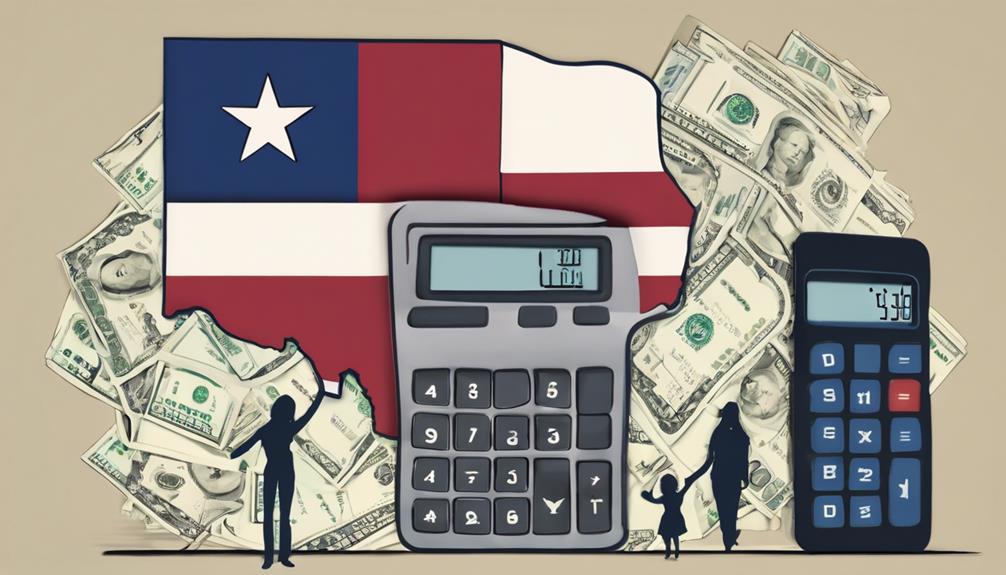Navigating the divorce process in Tennessee may feel overwhelming, but knowing the key steps can make the journey smoother.
From determining grounds for divorce to serving papers and considering contested versus uncontested proceedings, each phase plays a crucial role in the overall timeline.
As we delve into the intricacies of each step, you'll gain insights into how factors like residency requirements and negotiation tactics impact the duration of your divorce in Tennessee.
Key Takeaways
- Understanding fault and no-fault grounds is crucial for expediting or delaying the divorce process.
- Residency requirements and mandatory waiting periods impact the overall duration of the divorce proceedings.
- Prompt and correct serving of divorce papers is essential to move the process forward efficiently.
- Negotiations, agreements, and mediation can significantly influence the timeline of a divorce in Tennessee.
Grounds for Divorce in Tennessee
In Tennessee, the grounds for divorce encompass both no-fault reasons, such as irreconcilable differences, and fault-based causes like adultery. No-fault divorces are common in Tennessee, where couples can cite irreconcilable differences without having to prove fault.
On the other hand, fault grounds for divorce in Tennessee include adultery, habitual drunkenness, and willful desertion. When claiming fault-based grounds, it's essential to provide evidence to support these claims.
Understanding the distinction between the fault and no-fault grounds for divorce is crucial when seeking a dissolution of marriage in Tennessee. Couples must be aware of the specific requirements and implications associated with each type of ground to navigate the divorce process effectively.
Whether it be proving fault in cases of adultery or simply citing irreconcilable differences, having a clear understanding of the grounds for divorce in Tennessee is fundamental for a successful dissolution of marriage.
Filing for Divorce in Tennessee

Understanding the nuances of the divorce filing process in Tennessee is crucial for a smooth and efficient dissolution of marriage. When filing for divorce in Tennessee, there are specific steps to follow. First, it's important to meet the residency requirements of living in the state for at least six months before filing. Once this is established, the divorce complaint, outlining the reasons for the divorce, must be filed with the court.
After the initial divorce hearing, there's a mandatory 60-day waiting period before the divorce can be finalized. If minor children are involved, an additional 90 days must pass before the divorce is completed.
To expedite the process, negotiations and mediation can be utilized to reach agreements on important issues like child custody, support, and division of assets. Including a request for a name change in the divorce complaint can also streamline the process, saving time and money. By understanding the Tennessee divorce process and following the necessary steps, individuals can navigate the filing process with more clarity and efficiency.
Serving Divorce Papers in Tennessee
When serving divorce papers in Tennessee, it's crucial to ensure that the spouse is properly notified of the divorce filing according to legal requirements. Here are some key points to consider:
- Legal Requirement: Serving divorce papers is mandatory to inform the spouse about the divorce proceedings legally.
- Options for Service: You have several options to serve the papers, including personal service, certified mail, or publication if the spouse can't be located.
- Out-of-State Spouses: If your spouse is out of state, they can be served through the Secretary of State in Tennessee.
- Court Permission: If the spouse's whereabouts are unknown, court permission may be necessary to serve the papers via publication.
Ensuring that the serving of divorce papers is done promptly and correctly is essential to keep the divorce process moving forward smoothly in Tennessee. It's important to understand these options and requirements to navigate the process effectively.
Contested Vs. Uncontested Divorce in TN

Navigating the complexities of divorce proceedings in Tennessee, whether through contested or uncontested means, is a significant step towards resolving marital issues effectively.
In Tennessee, a contested divorce arises when spouses can't agree on critical matters like asset division or child custody. This often necessitates court hearings, presentation of evidence, and potentially a trial, making the process more time-consuming and emotionally draining.
On the other hand, an uncontested divorce in TN occurs when both parties reach agreements on all aspects of the divorce without requiring court intervention. Typically, in uncontested divorces, spouses draft a Marital Dissolution Agreement outlining the mutually accepted terms.
Mediation is frequently mandated in contested divorces in Tennessee to facilitate resolution and prevent prolonged court battles. Understanding the differences between contested and uncontested divorces is crucial for spouses seeking to navigate the divorce process efficiently in Tennessee and achieve a satisfactory resolution.
Timeline of a Divorce in Tennessee
Going through a divorce in Tennessee entails a timeline that typically ranges from 2 to 6 months for most cases, with certain complexities potentially extending the process significantly. Understanding the timeline of a divorce in Tennessee is crucial for managing expectations and planning ahead. Here are some key points to consider:
- Initial Filing to Hearing: The initial divorce hearing in Tennessee can't be scheduled sooner than 60 days after filing, allowing time for paperwork processing and preparation.
- Minor Children Involvement: If minor children are involved, a mandatory 90-day waiting period must pass before finalizing the divorce, prioritizing the well-being of the children during this transitional phase.
- Complex Asset Cases: Complex asset cases can extend the divorce process to 18 months to 2 years, requiring thorough evaluations and negotiations to reach a fair settlement.
- Negotiations and Mediation: Efforts like negotiations and mediation can help expedite the Tennessee divorce process, facilitating smoother communication and potentially speeding up the resolution process.
Frequently Asked Questions
How Does the Divorce Process in Tennessee Differ for Military Personnel or Spouses of Military Personnel?
When considering military personnel or their spouses in a Tennessee divorce, unique regulations may apply. These rules can impact residency requirements, division of benefits, and other aspects. It's crucial to understand these nuances for a smooth process.
Are There Any Specific Requirements or Procedures for Changing Your Name After a Divorce in Tennessee?
Changing your name after a divorce in Tennessee involves specific procedures. You must include the desired name change in the divorce paperwork. After the divorce is finalized, obtaining a court order will allow you to update legal documents.
Can a Divorce in Tennessee Impact Child Custody and Visitation Rights?
Divorce in Tennessee can indeed affect child custody and visitation rights. Courts prioritize the child's best interests, so it's crucial to establish a solid parenting plan. Mediation or court decisions may impact custody arrangements based on individual circumstances.
What Happens if One Spouse Refuses to Sign the Divorce Papers in Tennessee?
If one spouse refuses to sign divorce papers in Tennessee, the process can be prolonged. Legal avenues like mediation or court intervention may be necessary. It's essential to seek legal advice to navigate this complex situation effectively.
Are There Any Alternatives to Traditional Court Proceedings for Divorce in Tennessee, Such as Mediation or Collaborative Divorce?
Yes, alternatives like mediation or collaborative divorce offer less adversarial ways to resolve disputes. These methods prioritize communication and compromise, potentially speeding up the process and reducing costs while promoting an amicable resolution for both parties.
Conclusion
In conclusion, navigating the divorce process in Tennessee requires understanding the grounds for divorce, filing procedures, serving papers, and the difference between contested and uncontested cases.
By following the timeline and seeking support through negotiations and mediation, couples can work towards a resolution.
Just as each marriage is unique, each divorce journey in Tennessee is also distinctive, but with patience, communication, and legal guidance, couples can ultimately reach a new beginning.










